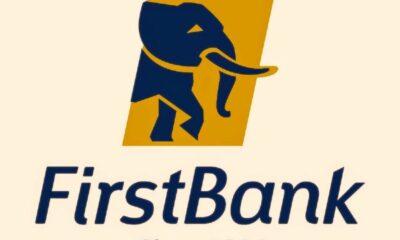First Bank of Nigeria Limited has partnered with Junior Achievement Nigeria to implement the 22nd National Company of the Year (NCOY) competition which will be held on Thursday, 13th October 2022.
The annual flagship event which was last held physically in 2019 will bring together 12 winning student companies from the Regional Company of the Year competition to compete for the National Company of the Year award sponsored by First Bank of Nigeria Limited. The winner of the National Company of the Year competition will proceed further to represent Nigeria at the Junior Achievement Africa’s Company of the Year (ACOY) competition.
The goal of the Junior Achievement Company Program is to inspire senior secondary school students to start and run their own business(es), develop a product or service, and market their brand. With the support of seasoned volunteers, students come together to form a company, choose a business name and elect company officers to oversee the operations of the company for the program duration. These activities help them hone some in-demand skills like creativity, accountability, teamwork, leadership, problem-solving, critical thinking and public speaking needed to succeed in this competition and thrive globally. In the end, the student companies present the results of their enterprise before a panel of judges.
The judges for this year’s competition are: Osayi Alile -CEO, Aspire Coronation Trust(ACT) Foundation; Molade Adeniyi -CEO, Wave; Nneka Itabor, Head, Transaction Banking Sales, Commercial Banking, FirstBank; Afolake Oredola, Business Manager, Commercial Banking, FirstBank; Uchenna Achunine, Director, Business Development and Communications, Nigerian Conservation Foundation (NCF); David Adegboyega – Sound Character Coach & Nation Builder; Femi Iromini – Co-founder/CEO Moni Africa.
According to the Executive Director, Junior Achievement Nigeria, Foluso Gbadamosi, she stated:
“We are glad that the National Company of the Year competition will once again be held physically after 2 years of being virtual. We are eager to see the tremendous business solutions and enterprises that our young leaders have doggedly built. More than ever, it is extremely important to equip young people for a global economy and we are grateful to selfless minds in the form of people and organizations who have partnered with us on this mission. We celebrate our sponsors, First Bank of Nigeria Limited for their continual support in building young leaders and we say a big thank you to every friend and stakeholder of JAN.”
Folake Ani-Mumuney, FirstBank’s Group Head, Marketing & Corporate Communications said “we commend Junior Achievement Nigeria for organizing the 22nd edition of the National Company of the Year Competition, a competition that has been impactful in promoting the entrepreneurship skills, spirit and talent innate in school children, whom are unarguably the leaders of tomorrow.
Our sponsorship of the National Company of the Year competition aligns with our FutureFirst initiative driven to promote financial literacy, entrepreneurship and innovative development and career counseling of school children at an early age. We are excited to be part of the entrepreneurship journey of all representatives of the participating teams and we wish everyone the best”, she concluded.
The 12 student companies competing at Junior Achievement Nigeria 2022 National Company of the Year are:
- Green Apex student company from International School, University of Lagos; produced a biodegradable sanitary pad for women
- Champion Squad student company from Taidob College, Asero, Ogun State produced the wearable totes made from a revamping process of used clothes with creative and fashionable local adire
- Nexus Queens Creation student company from Queens School, Ibadan developed a Decorative led lamp structured with 80% carton.
- Octagram student company from Redeemer’s Int’l Secondary School, Rivers State developed a Gas detector which alerts users about leakages and Honey candy that aids digestion, heals sore throat and reduces cholesterol
- Amazing Explorer student company from Government Secondary School, Tundun, Wada, Jos developed a pig dung, a renewable energy product that produces methane gas which when connected to a burner produces the required energy for cooking and a free energy generator produced from scrap materials.
- Unique Standard Technology student company from Unique Standard Academy, Kaduna, developed an Infinity DC Generator
- Kundila Energy concept student company from Government Arabic Secondary School, Kundila, Kano, developed the Kmasgas
- Government Science and Technical College, Garki, Abuja developed Interlocks
- Peace Elshadai Model Academy, Auta Balefi, Nasarawa developed a laptop power bank
- Top Faith International Secondary School, Akwa Ibom developed a Vacuum cleaner
- De Perficient student company St. John’s of God Secondary School, Enugu developed Verso bot(a robot)
- The straw recyclers company, from Special Education School, Tudun MALIKI (School for the blind and Deaf) used abandoned straw and take away plastic spoons from the garbage and recycled them into different home accessories: bags, doormats, home decorations, tissue papers containers, coin purses and more.

















